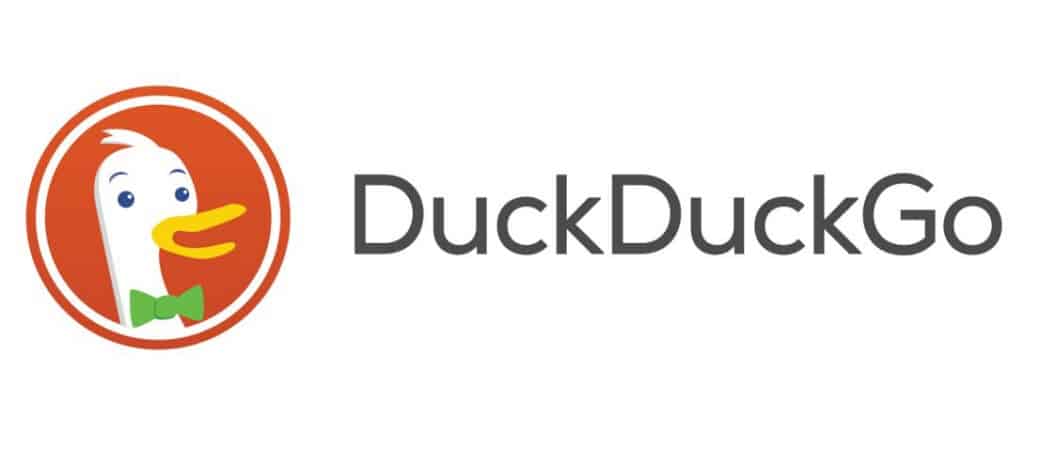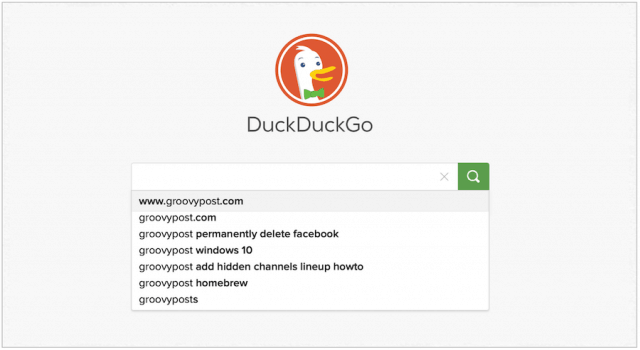What is DuckDuckGo?
Now the home to over 1 billion searches per month, DuckDuckGo was founded in 2008, not in Silicon Valley, but Valley Forge, Pennsylvania. Since its start, the company’s privacy policy has been a simple one: “We don’t collect or share personal information.” Other search engines, chief among them Google, save your search history. Along with this information, it also keeps the date and time of the search, some information about your computer such as its IP address, and if you are logged in, your account information (including your name and email address). As DuckDuckGo explains, with only a timestamp and computer information, your searches can often be traced directly to you. DuckDuckGo is different. The company doesn’t store IP information, log user information, and only uses cookies when required. In other words, your search history is safe and cannot be tied to you in any way.
What’s the Catch?
Two questions are worth answering about DuckDuckGo before moving forward. First, is any information collected? And second, how does the company make money? On the former, cookies aren’t used by default. However, if you change settings, cookies are stored to remember those changes. However, DuckDuckGo promises they aren’t kept in a “personally identifiable way.”
Where is it available?
DuckDuckGo is readily available across multiple platforms and devices where you typically do web searches. On Mac and PC, there’s the DuckDuckGo website or browser extensions. Yes, even on the Google Chrome browser. On mobile, you can use a DuckDuckGo privacy browser on both iOS and Android. On both desktop and mobile, you can also make DuckDuckGo your default search engine.
Through Website
The DuckDuckGo website offers the easiest way to access the service for search, regardless of your browser. From here, do your search and forget about it. The company relies on more than 400 outside sources to help generate its search results, including Wolfram Alpha, Bing, and Yahoo Search Boss. Crowdsourced sites such as Wikipedia are also used.
As the following example shows, search results between DuckDuckGo and Google are somewhat similar, except the former doesn’t collect your personal search data.
Google Chrome and Firefox
In addition to visiting the DuckDuckGo website directly to search, Google Chrome and Firefox users can also use the service using the DuckDuckGo Privacy Essentials extension. The tool is equipped with advertising tracker blocking, private search, and smart encryption. Once installed, each site you visit through Google Chrome receives a privacy grade. By default, Site Privacy Protection is turned on. For whatever reason, you can turn it off, although that doesn’t come recommended. As you visit difference sites, you’ll see how the privacy grade has improved thanks to the DuckDuckGo Privacy Protection. For example, you’ll notice a privacy grade of B+ for the entertainment site TVLine.com. The site doesn’t get an A because it uses trackers. Without Privacy Protection turned on, the site actually receives a D. The reason? The site users 646 trackers!
To get started with DuckDuckGo Privacy Protection on Google Chrome, click on the DuckDuckGo icon on the Google Chrome toolbar.
Microsoft Edge
On Microsoft Edge, you can easily replace Bing with DuckDuckGo as your default browser search engine. To do so:
Apple Safari
If you’re using Apple Safari, you can also make DuckDuckGo your default search engine: From now on, DuckDuckGo is the default search engine in Safari.
Mobile
You can use DuckDuckGo as your default search engine on both iOS and Android, On iOS:
On Android: To make DuckDuckGo the default search engine on Google Chrome on Android:
Mobile Apps
DuckDuckGo offers apps for both iOS and Android. Both provide a built-in web browser with DuckDuckGo as the default search engine.
Is DuckDuckGo for You?
If you’ve grown tired of giving away your personal information to services like Google Search, DuckDuckGo is probably for you. After comparing both, I’ve noticed the results are very similar, strangely so. Because of this, I’ve decided to switch from Google to DuckDuckGo for search purposes to gain back some of my privacy. Will I stop using Google products completely? Probably not, but this is an important step in my mind nonetheless.
![]()









